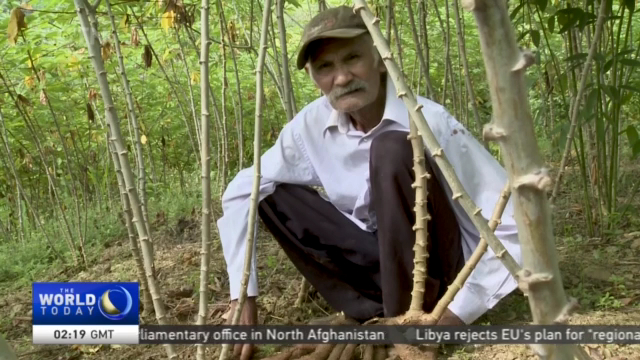
11:03, 20-Oct-2018
Venezuela Crisis: Hyper-inflation takes a toll on agriculture
Updated
10:55, 23-Oct-2018
03:26

For Venezuelans living outside the capital of Caracas, the country's economic crisis presents particular challenges. Farmers in rural Venezuela are finding it difficult to put food on their own tables, much less provide for the rest of the nation. CGTN's Juan Carlos Lamas has that story.
The sun is rising over his farm in a rural valley in northwestern Venezuela, a couple of hours drive from the capital. 86-year-old Rafael Farfan is getting ready to go out to the fields he's worked for five decades.
RAFAEL FARFAN FARMER "I don't have the same strength I used to have. Working in the fields is hard, and I don't have the proper machinery so everything we do has to be done by hand."
As hyperinflation in Venezuela climbs to one million percent this year, buying seeds and fertilizer, maintaining equipment and paying wages are all too expensive. Farfan told his four farm workers he could no longer afford to pay them and now he and one of his sons are on their own in the fields.
NELSON FARFAN FARMER "We produce food just for us to eat. We don't sell our crops anymore, eating is more important."
The bananas, beans and cassavas they grow go to feed Rafael and his wife, son and three other adult children who live on the farm. They depend on it to supplement the government program that delivers a box of food once a month.
RAFAEL FARFAN FARMER "It's hard, the government's food box is enough to feed my family for three days. The rest of the month we eat what we can get from our crops."
As they wait for the harvest, Farf says his family tries to set aside enough food for a small meal two times a day. Sometimes, all they have to stave off hunger is a cup of coffee.
JUAN CARLOS LAMAS MANRIQUE "The IMF predicts Venezuela's inflation rate will reach 10-million percent next year. With that kind of massive increase in prices the Farfan family says it's hard to imagine how they'll be able to buy the supplies they'll need just to grow food for themselves."
Venezuelan President Nicol Maduro has unrolled a new plan to tackle the agricultural crisis. He says the government will invest 1.2 billion dollars toward agricultural projects.
NICOLAS MADURO VENEZUELAN PRESIDENT "It is important to create a special and specific fund for the entire agricultural sector, a fund exclusively dedicated to the purchase of the necessary seeds, which will allow us to grow what we need from 2018 to 2019."
That plan will come too late for many of the farmers in this small community. Farf says nearly a quarter of the families in the valley have given up farming and moved away either to the big city or out of the country.
But he says as long as he's got air in his lungs, he's determined to go out to the fields to grow food to put on his family's table. Juan Carlos Lamas, CGTN, Manrique, Venezuela.

SITEMAP
Copyright © 2018 CGTN. Beijing ICP prepared NO.16065310-3
Copyright © 2018 CGTN. Beijing ICP prepared NO.16065310-3